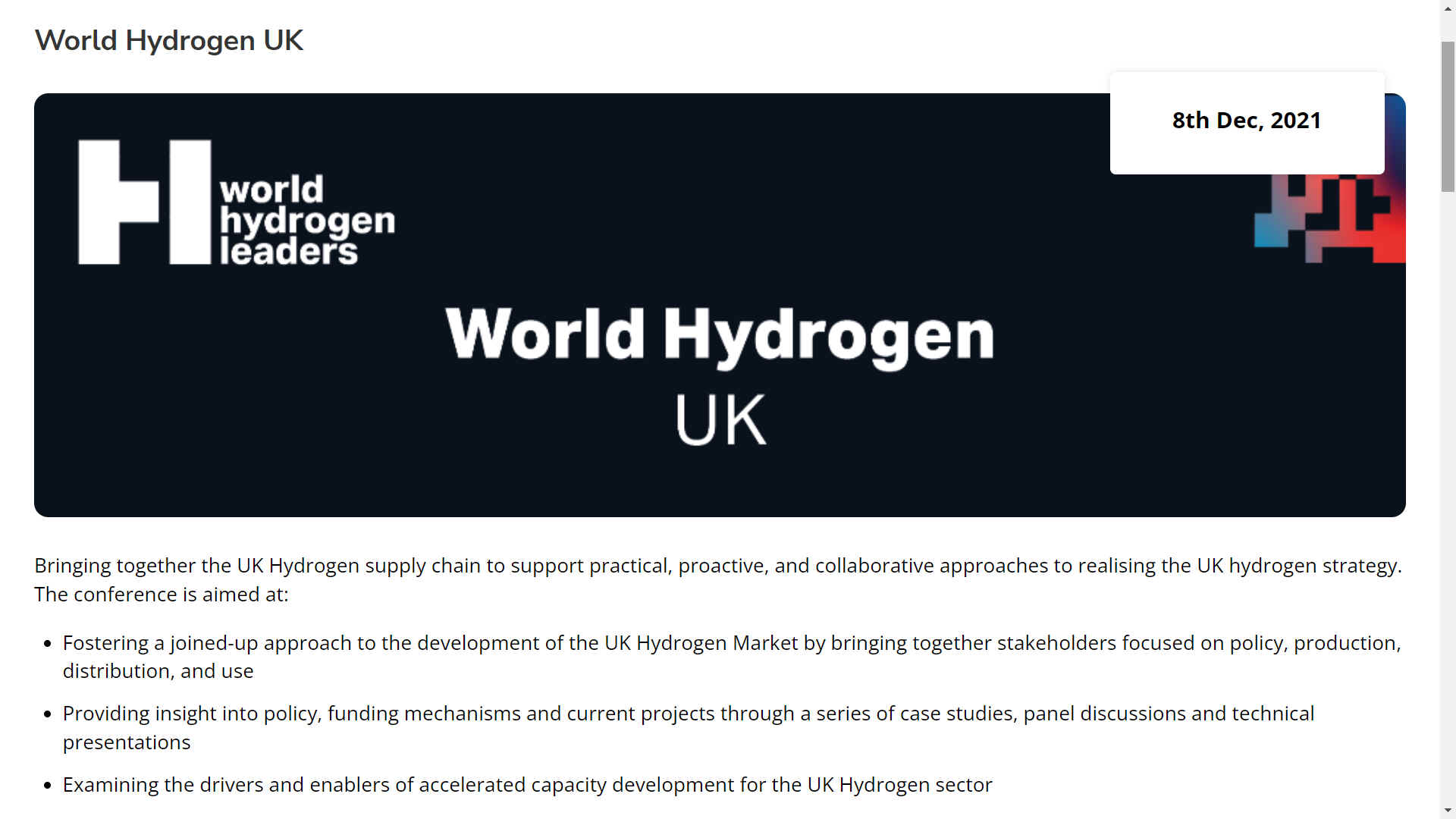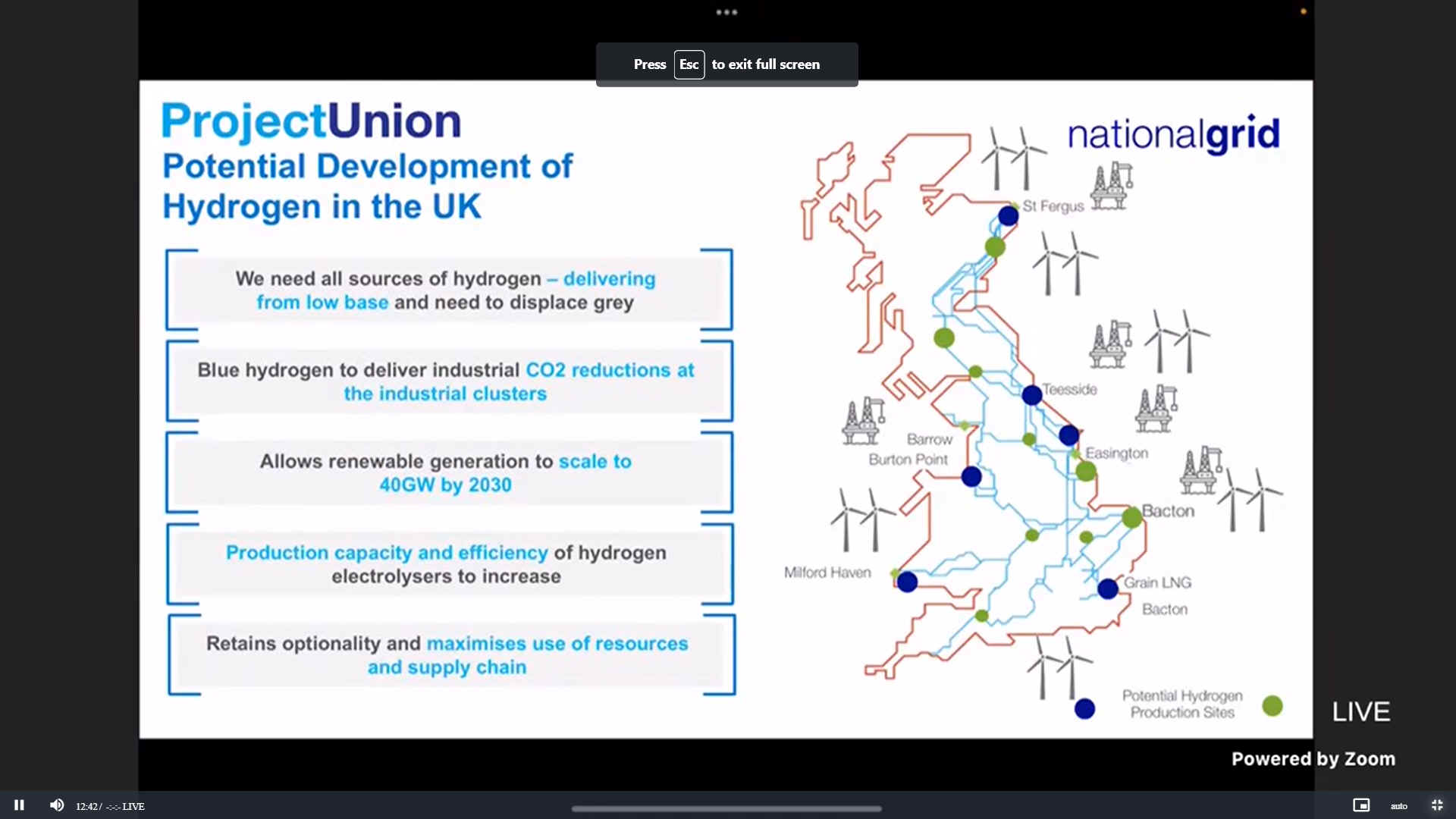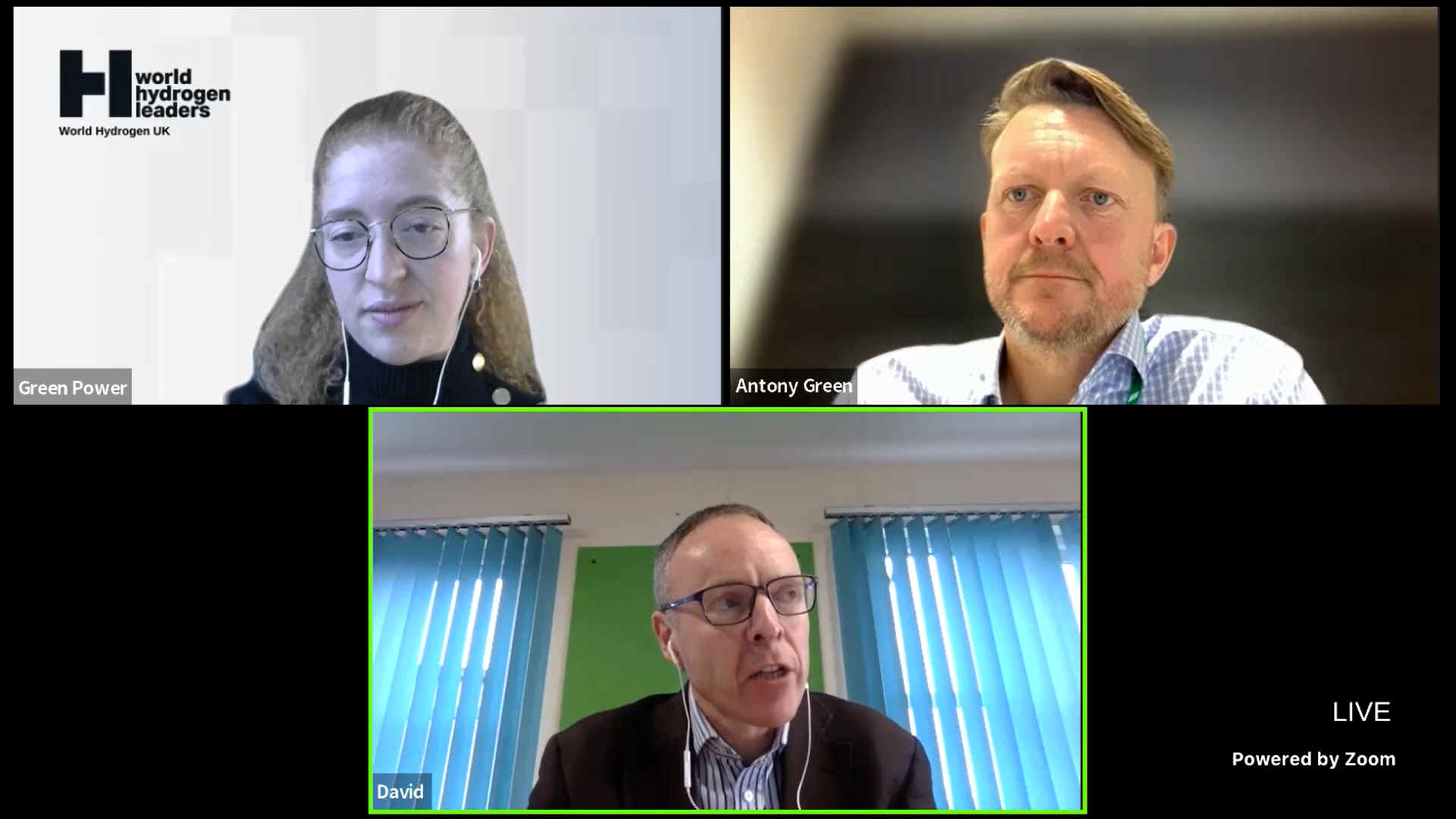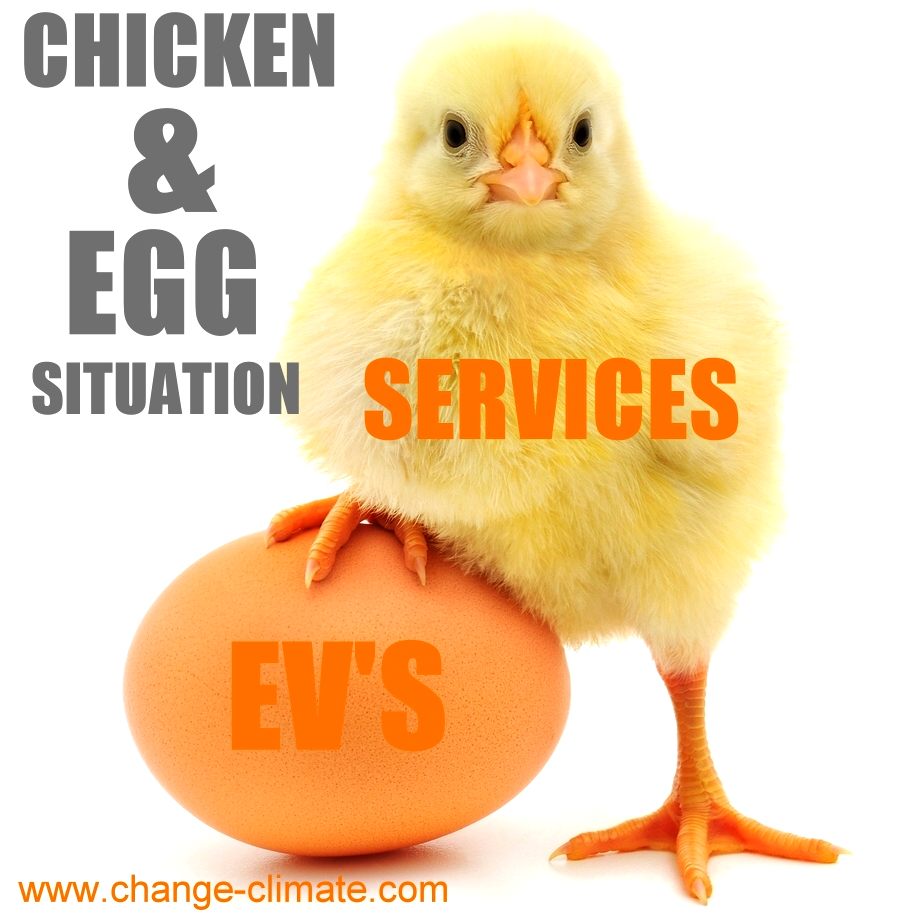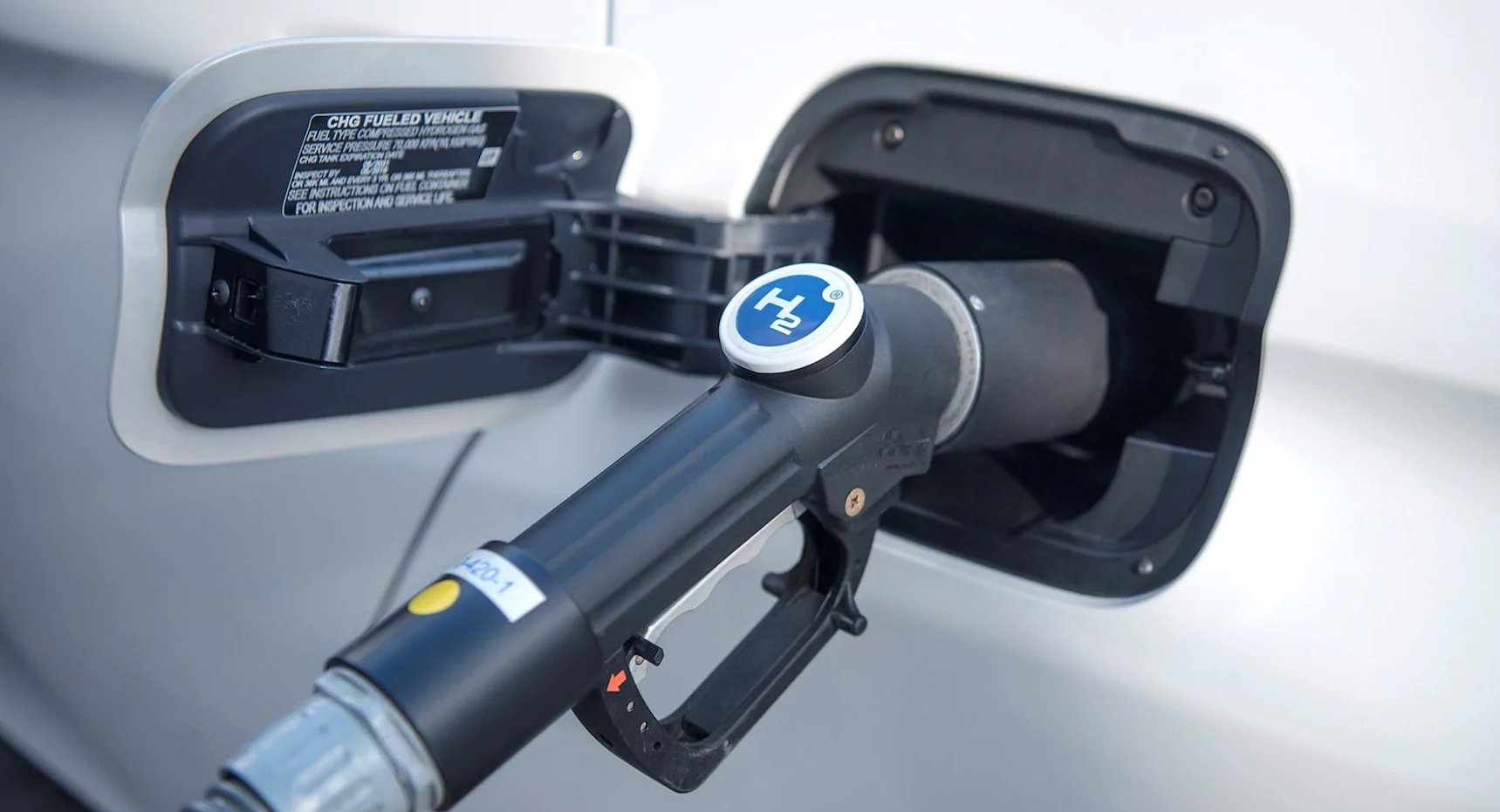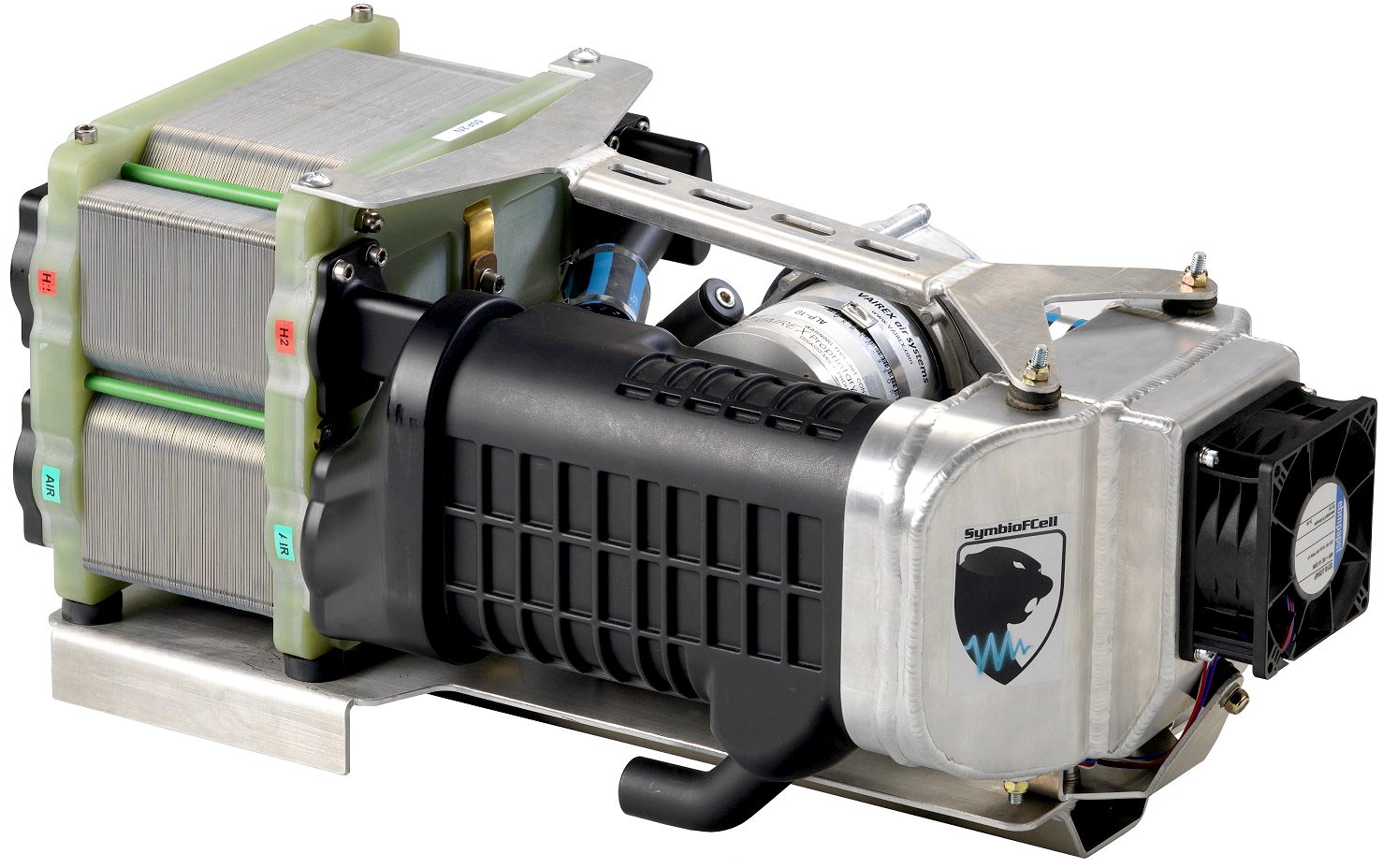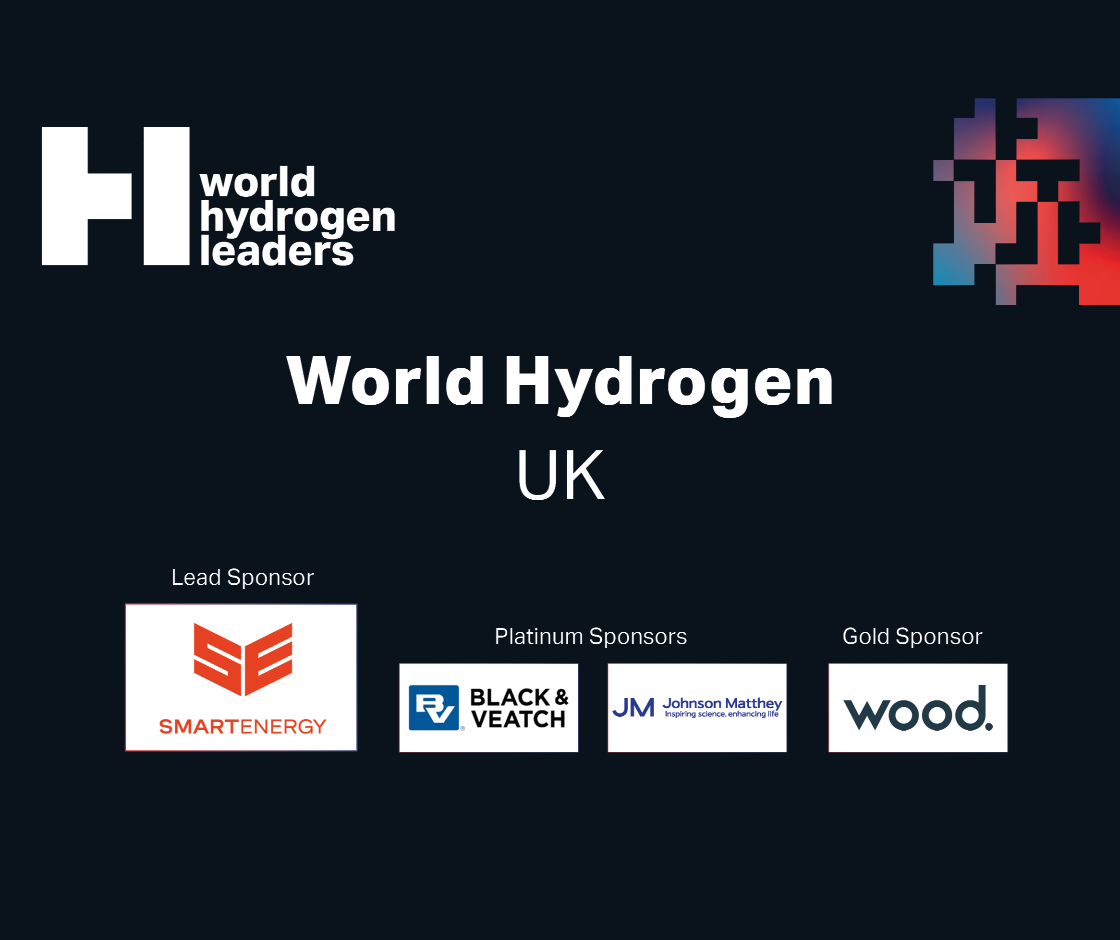|
UK WORLD H2 CONFERENCE 8th DECEMBER 21
Please use our A-Z INDEX to navigate this site where page links may lead to other sites, or see HOME
|
|
|
Imagine a means to store electricity as green hydrogen for load levelling of national grids, while also supplying energy for commercial vans and heavy duty trucks. Fuel cells provide a way to convert hydrogen gas into electricity, but on their own they do not represent a solution. Silos are a thing of the past. One way forward is with SmartNet™, a dual-fuel infrastructure system. At the moment just a concept in need of development partners.
This was a very informative series of presentations and panel discussions, with thanks to all contributors for their enlightenment. At the moment there are two camps, blue and green hydrogen. Both methods have merit, blue in the short term, green as a sustainable long term solution - in the creation of a circular economy.
It is heartening to see so much development taking place in the UK. Apart from the difficulty of converting either fossil fuels (with carbon capture) to hydrogen for industrial use or home heating. This is in the form of producing and H2 pipelines, to deliver such energy. Cost being a major issue in competing with coal and gas, with wildly varying estimates in dollar terms for a kilogram of hydrogen.
UK HYDROGEN CASE STUDIES - 10:50 AM - 11:40 AM session
Megan Farbrother - Green Power Global David Parkin - Director at Progressive Energy & Tony Green - Hydrogen director at National Grid.
THE ECONOMICS OF HYDROGEN 12:40 PM - 01:25 PM SESSION
Welcome to the final session: Panel Discussion: Capacity Development Deep Dive – How well prepared is the supply chain to deliver on the hydrogen plan? If you have any questions for our panel, please send them via the Q&A tab! Various questions were raised and discussed on the following topics.
1. What needs to be done for UK Hydrogen to reach cost parity with other fuels? 2. What is the roadmap for driving efficiency in production? 3. What role will retrofitting existing infrastructure play in the cost-effective production, storage and distribution of Hydrogen?
Zoom conference by:
It is early days, but we are running out of time is we are to stand a chance of slowing global warming. Policy makers need to keep in mind that the quick fixes to make the UK look as if it is achieving its target will founder, unless their is investment now, in the longer term solutions. The ones that are sustainable. The blue hydrogen proposals using carbon capture, is meaningless and potentially wasteful of energy in the need to capture and store carbon, that need not be created if renewables were implemented. And, carbon capture (or offset) has proved ineffectual on the Drax biomass generating station - as an example. Because, they have not planted the trees as required, to generate any offset.
CLEANER OCEAN FOUNDATION INPUT
Our special projects manager, Nelson Kay, attended three of the many events at this conference, sharing information using the 'Chat' function in Zoom live as per the items below, responding to the speakers comments.
Nelson Kay: "Hi to All, We are keen to promote hydrogen awareness for land and water vehicles. If anyone is interested, please see: http://jules-verne.org/ growth@blue-growth.org We'd like to see flatpack service stations as hydrogen stores and filling of EVs, including smart load levelling."
"Load levelling of renewables, from off peak, to peak using smart tech, helps to lower the cost of supplying both hydrogen (green &
blue) and electricity. Hence, the flatpacks station concept: SmartNet"
HENRIETTA - thinks she may have something to chirp about. She thinks she may have cracked the 'chicken and egg' conundrum that as of 2021 is stopping more people enjoying zero emission transport. If you are looking for a risk reduced business model, Henrietta's proposal is well worth a look.
PANEL DISCUSSION, CAPACITY DEVELOPMENT 8th December, 2021 - 01:55 PM - 02:40 PM
Domestic supply chain readiness for a Hydrogen boom - How should we be informing the development of domestic infrastructure with a future roadmap for global trade? The fundamental importance of a joined-up, collaborative, phased approach across policy, production, distribution and use.
Zoom Panelists:
Nelson Kay: No disrespect to Tony Green, and yes pipelines are great for delivering H2 to industry and home, but that does not provide any load levelling capacity. Suitably designed service stations for EVs, can provide that storage, and service FCEVs, while feeding electricity back to the grid when needed.
We call smart service stations: SmartNet. They would be low cost flatpacks, to accelerate uptake and installation. This tech is in the conceptual stage, but provides one possible business model for making it happen.
The good news is, we only need to design the one unit, and demonstrate it. See:
Worth considering, but as an SME, we'd need some hefty partners.
Could not agree more with Graham. The infrastructure needed should be joined. The energy supply is interchangeable.
Again, Graham has hit the nail on the head. The future is
green
hydrogen. The service stations we are proposing are multi-fuel, aimed at renewables and load levelling. Not with silos, but similar effect.
Fuel cells provide a way to convert hydrogen gas into electricity, but on their own they do not represent a solution. They are though, an essential ingredient of the mix, if policy makers are to get their heads around hydrogen gas and electrical energy being one and the same thing, instead of funding calls for one or the other. Nobody in their right mind is going to apply for funding if the calls are not on point. So far, the UK and EU have been very wide of the mark.
LIST OF ATTENDEES - 62 IN ALL
Tommy D
- Engineer, Alpha
Eric Maina
- Project Engineer, McDermott
LINKS & REFERENCE
https://worldhydrogenuk.hubilo.com/ https://worldhydrogenuk.hubilo.com/
Please use our A-Z INDEX to navigate this site
Copyright © Climate Change Trust & Universal Smart Batteries 2021. Solar Studios, BN271RF, United Kingdom.
|
